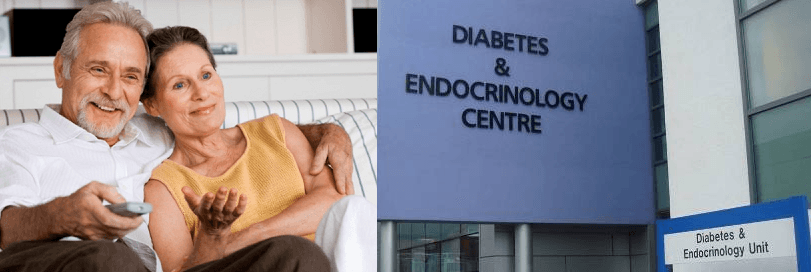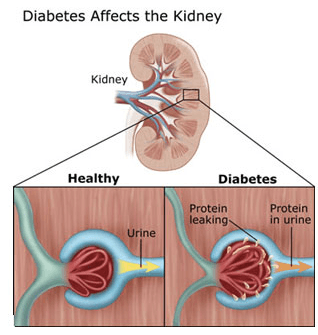Advanced Diabetes Treatment from Best Hospitals in India – Diagnosis and Surgery
Comprehensive and Most Advanced Treatment options for Diabetes
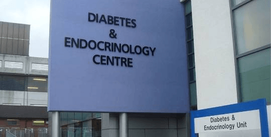
Request a Call Back
These centres provide globally accepted diagnostic and treatment options like:
1. Magnetic resonance angiography done to study the condition of the blood vessel. Any narrowing of the blood vessels supplying the heart, brain, eyes, nerves and legs can be visualised using radio opaque dye. The dye highlights the narrowed portion of the artery.
2. Advanced digital foot pressure measurement to diagnose any developing wound or ulcer in the foot. It can also check for defective blood supply in the foot that can cause gangrene.

4. Continuous Glucose Monitoring System is the latest FDA approved technology for home use by the patient. A tiny sensor, fitted under the skin of the patient, measures the sugar levels in the tissue fluid and sends radio waves that are recorded on a pager like device. It can measure continuously over a period of 72 hours. The sensor needs to be replaced after a week. The values are downloaded and reviewed during doctor visit.
5. Encourage activity and diet log by patients to understand their exercising and eating habits for accurate advice.
6. Insulin Pump is a lifesaving device for the patients with type 1 diabetes. The device supplies slow acting insulin on continuous basis to the patient which reduces the need for daily oral medications or painful injections. They keep the glucose levels around the baseline preventing any sudden spikes or lows helping in better management.

- Adjustable gastric banding: An inflatable band is used to reduce the size of a patient’s stomach restricting quantity of food consumed at a time. Fastest and least invasive weight loss surgery technique that can be reversed if required.
- Vertical sleeve gastrectomy: Restricts food intake by removal of major part of the stomach. The vertical sleeve gastrectomy procedure is irreversible.
- Roux-en-Y gastric bypass: Roux-en-Y gastric bypass, a popular procedure combines both principles of bariatric surgeries- restricting food intake and reducing absorption of nutrients by the body. The stomach is cut into two parts. The upper part is connected directly to lower part of small intestine, thus reducing food intake and areas for food absorption.
-
Bilio-pancreatic diversion with a duodenal switch: This procedure is like gastric bypass. However, a lesser portion of the stomach is removed in this case and the small intestine is bypassed. This technique is not very popular as it is the most complicated of all weight loss surgeries.
Bariatric Surgery can be an open or a laparoscopic one the latter being preferred by most patients as it less painful, does not generally cause post-operative complications and involves less recovery time.
Post-surgery a patient needs to religiously follow a strict diet and exercise regimen to keep the weight under control. In many cases patients may also require to undergo further surgery to deal with loose fat.
8. Diabetic Foot – Care And HBOT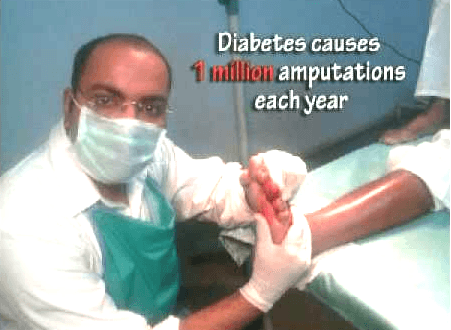
9. Diabetic Vascular Diseases Diabetes makes small and big arteries vulnerable to thickening. Increased plaque formation causes narrowing of arteries (Atherosclerosis) affecting the blood supply to the heart, brain, kidney, eyes, nerves primarily. Treatment of vascular diseases involves bypass grafting, stenting, angioplasty to removal of blockages and surgeries to correct retinopathy, nephropathy and neuropathy.
10. Diabetic Eye Disorders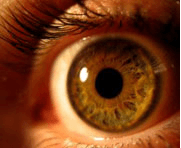
Signs & Symptoms
Many people with early diabetic retinopathy have no symptoms before major bleeding occurs in the eye, the same holding true for proliferative retinopathy as well. At this advanced stage, there is high risk for vision loss. About half of the people with proliferative retinopathy also have Macular Oedema, where fluid leaks into the centre of the macula, causing blurred vision. This can also develop without any symptoms whatsoever. Don’t wait for symptoms, because it may be too late to save complete vision.
But some of the symptoms given below may occur:
- Blurred vision and slow vision loss over time
- Floating opaque spots
- Shadows or missing areas of vision
- Trouble seeing at night
- Sudden bleeding from the eye
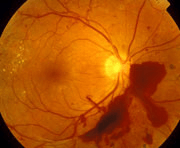
Treatment of Diabetic retinopathy
Better control of blood sugar levels, high blood pressure and high cholesterol levels slows the onset and progression of retinopathy Proliferative retinopathy is treated with scatter laser treatment If the bleeding is severe, a surgical procedure called a vitrectomy, is employed to remove the blood from the centre of the eye. It may also be used to repair retinal detachment Low vision services and devices may be used to help those who have already suffered some vision loss due to diabetic retinopathy
What People say about us – Patient Experience

Thanks you all and God bless you ! “

Ms. Janet Biuware From CameroonRefer a Patient
Frequently Asked Questions
Once you have decided that you want to get treatment in India you can email us your latest medical reports and accompanying X-Rays, MRI Scans and other relevant medical documents at help@safemedtrip.com or Call or WhatsApp us on +91-9899993637 for one to one discussion with our executives.
Once we receive your reports, we will get them reviewed by our medical experts and will send you a detailed treatment package consisting of doctor’s diagnosis, treatment plan, cost of treatment, duration of stay in hospital and duration of stay in India besides other relevant details.
Once you have confirmed to us that you want to proceed further to get treatment in India, our team will help you with the Indian medical visa assistance and documentation process. We will also help you in arranging for a comfortable local stay for you and your attendant. You don’t have to send any money in advance.
Savings can be from 30-50%, depending upon the procedure and the destination. Your treatment will be carried out from only the best hospitals in India that are NABH accredited and have specialists that are recognized globally for their expertise.
From the date you decide on one of the three affordable treatment packages offered to you. It may take 1- 3 weeks to obtain Medical Visa and book flight tickets. We have zero waiting period and you can be received at the Airport on arrival and immediately admitted at hospital and treatment will start.
Its advisable that you should not delay your treatment particularly in case of severe illnesses like Cancer, Heart or Spine etc. Early start of treatment results in quick recovery and lower expense compared to delay of treatment.
The difference in cost package due to the labour and insurance costs of the hospital operating in India, and not by the difference in the quality of treatment.
Each patient is assigned to a SafeMedTrip Patient Case Manager who will take care of every single detail ranging from arrival to send off.
Yes, of course. We will provide you with complete assistance in selecting high-quality hotels near the hospital location that fits your budget.
You will be given a complete profile of the specialist before you proceed for the treatment. On special request, we will be happy to connect you with him through a teleconferencing service facilitated by Skype.
Get the SafeMedTrip Advantage


No Obligation – Zero Cost Assistance. We do not collect any service fee from patients. You will directly pay the hospitals after you arrive in India. We ensure Quick, Hassle Free, Affordable Treatment at World Class hospitals in India.

 Click to WhatsApp
Click to WhatsApp +91-9899993637
+91-9899993637
